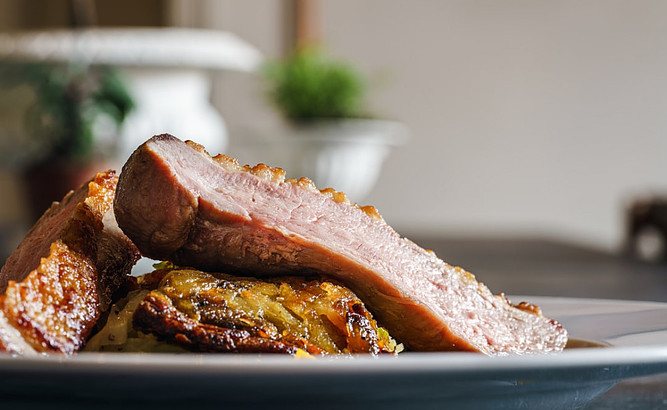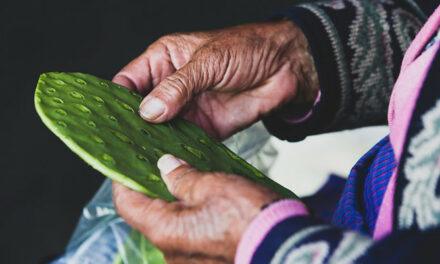If you are living with diabetes, you will be frequently asking from yourself which foods and drinks to consume. Which foods are safe, which foods should be avoided? A specific type of food that diabetics question a lot is meat. Some meats can benefit diabetics, and others can be potentially dangerous for them to eat. Meats can be sneaky in that way, and there’s a fine line between those that are good for diabetics, and those that might cause some damage or harm them. Well, today, we will be discussing meats, specifically duck, and finding out: is duck meat good for diabetics, or is there something else they should opt for instead?
So, let’s get started.
Types of Meat
There are many types of meat out there for people to chose from. Whether you want/need protein, you need a main course for your dinner, or you just have a craving for some meat, there is always a meat out there to satisfy it.
There are many choices you have to choose from when choosing which meat to consume, however. Some of the choices you have, including the following:
1) Red Meat
Red meat is meat such as steak, beef, lamb, ham/bacon, etc., which is a reddish color when raw, but a dark color when cooked.
2) White Meat
Typically, from chicken, turkey and pork, white meat is meat that typically comes from the breast, that’s a pale white color. It’s white before, while, and after cooking.
3) Seafood
Including fish, clams, shrimp, lobster and more, seafood is food from the ocean, or “the sea”. Every bit of seafood looks and tastes different, though most seafood has a salty, seawater like taste.
4) Anatidae
This is a family of birds that are commonly found in fresh and salt-water. Duck is a part of this family.
Now that we’ve discussed a few of the different types of meat out there, let’s dive deeper into red and white meat. Let’s discover and discuss what the differences between the two are, beyond just color.
Red Meat vs. White Meat
Red meat and white meat are significantly different, more than you might think. Their biggest difference is the amount of myoglobin they hold.
Myoglobin is a protein that is actually the reason for a meats color. Red meat is red due to the protein, and it has a much larger amount than white meat does.
The biggest difference, though is what types of meat are considered red meat, and which are considered white meat.
Red meat
is meat such as steak, beef, lamb, ham/bacon, meat’s that are bright red when raw, and dark-colored when cooked.
White meat, however, includes pork, and lots of different poultry meats. For example, chicken, turkey, etc. White meat comes from the breast, though, while leg meat is typically dark.
Finally, I want to discuss the cholesterol that each meat holds. Some people believe red meat is “bad cholesterol”, while white meat is a healthier choice for something like this. Turns out, white meat is really no better than red meat when it comes to cholesterol, so that shouldn’t be a factor when deciding which meat to consume.
They both have the same effect on cholesterol, so it won’t matter much to pick one over the other.
Now that we’ve talked a bit about the difference between red and white meat, let’s move onto the nutrition that duck holds inside of it.
What is Duck Meat? (Nutrition Content)
The nutritional content of duck meat is in the table below:
|
Nutrient |
The amount in duck |
|
Total Fat |
40 g |
|
Cholesterol |
118 mg |
|
Potassium |
286 mg |
|
Total Carbohydrates |
0 g |
|
Protein |
27 g |
Now that we’ve gone through the nutrition that duck meat has, let’s compare duck meat to other types of meat out there. Starting with chicken…
Duck Meat vs. Chicken – The Difference
These two types of meat are relatively different from each other in just about every way. Here are a few of the top differences between them:
1) Duck has a much stronger flavor, as it’s closer to red meat than chicken is.
2) Duck has fewer calories than chicken. It has 120 calories while chicken has 165.
3) Chicken skin is thinner and not as high in fat, meaning it’s healthier.
Now, let’s move on to the differences between duck and goose meat.
Tip: Here we explain how eggs affects your blood pressure and diabetes.
Duck Meat vs. Goose – The Difference
Duck meat and goose meat have a handful of differences, as well. Though the two animals may seem relatively similar, the truth is the meats they hold are significantly different from one another.
Here are a couple differences between these two types of meat:
1) Ducks are omnivores, while geese are herbivores, resulting in a few differences between the meat. The differences are noticeable, specifically in look and in taste.
2) As far as the look goes: the duck has lighter flesh, while geese have darker, fattier meat.
3) As far as the taste goes: Ducks have a very gamey taste, while geese have a sweeter, more fragrant taste.
Finally, let’s discuss the difference between duck meat and beef.
Duck Meat vs. Beef – The Difference
Duck meat and beef have the most differences out of all the different types of meat we’ve compared duck meat to, today.
Here are the most important distinctions to mention between these two types of meat.
1) While duck does contain a significant amount of fat between the skin and the meat, it’s not as much fat as beef contains.
Beef has marbled fat throughout the muscle, which duck does not. However, in the end, duck actually has more fat than beef. In fact, 61% more.
Quite a large percentage, right?
2) When it comes to protein, beef is in the lead by a crazy amount. Beef has 126% more protein than duck meat has. That’s quite the difference.
3) Nearly every food has water in it, and that’s true for meat as well.
Beef has more water in it than duck does, though. Beef, on average, has 20% more water in than duck does.
Now, that we’ve gone through and compared duck meat to other meats out there, let’s discuss the rules that exist for diabetics when it comes to eating meat.
What are the Rules of Eating Meat for Diabetics?
When you’re a diabetic, meat can be a tricky thing to add to your diet, as there are lots of rules regarding it.
The main thing to remember, is too much fat can be bad for diabetics. Too much fat can be bad for everybody, because it puts you at risk for raising your cholesterol and heart disease, but diabetics are at an even greater risk.
Because of that, it’s recommended that diabetics stick to:
1) Lean meats
2) Duck and pheasant (not too much, and without the skin)
3) Fish
4) Chicken (without the skin)
5) Plant-based alternatives
That’s in most cases.
And it’s recommended that people with diabetes stay away from:
1) Meats high in saturated fat
2) Meats high in trans fats
3) Duck and pheasant with the skin still on it.
A big reason meat can be unhealthy for those with diabetes is because of the fat they contain. So, eating meats with what are considered “healthy” fats rather than “unhealthy” fats can mean consuming the meat without the worry of how it might affect you. It shouldn’t negatively affect you to consume meat with less fat, or with healthy fats.
Remember, a lot of the fat from duck, chicken, turkey, and select other meats come from the skin of it. If you remove the skin, it’s not as harmful to consume. That make’s it so diabetics can eat meat like a duck without worrying like they would have to with other meat, or with meat that still has the skin on it.
All of this is just something to remember if you’re diabetic and considering how much meat, and what kind of meat, you should be consuming.
Some other rules/guidelines to keep in mind when thinking about your meat consumption are the following:
1) Don’t consume too much, as getting too much of anything in your body can have a negative effect on the body.
2) Don’t consume meat cooked in significant amounts of oil, since the fat that oil contains could raise blood sugar and make a diabetic sick.
3) If you’re eating something that originally has skin on it, make sure to get the meat without skin on it. The skin will only make you sick, and potentially raise your blood sugar. The skin is fairly unhealthy for diabetics to consume, so try to avoid it whenever possible.
Those are the important rules to remember when consuming meat, if you’re diabetic.
Now, let’s dive in deeper, and finally answer the main question of this article. Is duck meat good for diabetics?
Let’s find out now.
Is Duck Meat Good for Diabetics?
This is a tricky question, if I’m being honest.
The meat overall is not terrible for diabetics. However, the fat holds make’s it not exactly healthy, or at least not the healthiest option.
There are much better choices out there, like chicken, turkey, or other white meats. If you follow certain guidelines and rules, though, and don’t consume too much, a little bit of duck won’t do much harm. But, there is no situation in which duck is actually considered “good” for diabetics. It does not benefit them ever, but it does occasionally harm them.
Due to the fact in no situation does it benefit diabetics or have a positive effect on them, that means it’s never considered “good” for them. Keep this in mind next time you’re debating whether you should have duck for dinner.
Is Duck Fat Healthy for You?
Simple answer: no. The majority of fat in food is typically not good for diabetics.
Even though there are a few exceptions to that general rule, duck fat is not one of them. It’s a very unhealthy thing for diabetics to consume, and it can have a negative effect on you, specifically on your blood sugar.
The fat is the main reason why duck overall is not good for diabetics, actually. I feel like that is pretty self-explanatory, when saying that: that because the fat is the reason duck is not good for diabetics to consume, the fat is not good for diabetics.
After discussing if the fat in duck is good for diabetics, let’s discuss another part of the duck, the skin, and see if that’s good for diabetics to consume.
Is Duck Skin Good for Diabetics?
Again: no. Duck skin is not good for diabetics.
There has been a lot’s of discussion on why duck skin is not good for diabetics, and the truth is the skin on a duck is very thick and fat. Because of this, it does not benefit diabetics, and the fat could potentially cause some damage.
The skin on other meats, such as chicken or turkey, is a lot better for diabetics, as it’s not as thick or fatty. Just something to keep in mind next time you decide to get some meat for dinner.
One of the biggest factors in deciding whether the eating duck would be safe for you, if you’re diabetic, is the way it’s cooked.
Right now, we’re going to discuss how the way the duck is cooked may affect your diabetes.
How the Way Duck is Cooked Effect Diabetes?
There are a few ways that duck is cooked in which it may affect diabetes differently than if it was cooked another way.
Depending on what oils, spices, and other items you use to cook the duck is a major factor for how the cooked duck with affect diabetics. More factors include;
- how long you cook it, and
- whether you left the skin on the duck, or took the skin off.
In reality, just about everything you decide to do when cooking a duck can change the effect that it has on diabetics. So, if you’re diabetic, or cooking for someone who’s diabetic, do some research first on what the best way would be for you to cook your duck.
Every little change in the cooking process can change how it may affect as diabetic, so keep that in mind when researching the best way for you to cook your duck.
Tips for Cooking Duck Healthy
Here are a couple of helpful tips for cooking duck in a healthy way:
1) Remember to take the skin off. This can make a big difference.
2) Try not to use too much oil.
Oils are filled with fat, and the fatty content is the main reason duck should not constantly be consumed by diabetics. So, adding more fat to the mix may not be the best thing to do.
Those are two tips to remember next time you’re cooking duck. These two tips can be game-changers, especially for diabetics. It makes the food you eat less harmful, and gets rid of a lot of the unhealthy parts of consuming duck.
Now that we’ve talked about tips for a cooking duck in a healthier way, let’s discuss in which situations diabetics shouldn’t even consider eating duck.
Tip: Here are the best knives to use while cooking.
When Should Diabetics Not Eat Duck?
Just like most things, there are times when diabetics shouldn’t eat duck at all. When they shouldn’t risk consuming it.
Here are a few of the situations in which diabetics should not consume duck:
1) When the skin is left on it.
We’ve already been over this, but just a reminder: duck skin is full of fat, and isn’t healthy for those with diabetes.
2) When it’s cooked in a significant amount of oil.
We’ve already touched on this one a bit too, but just a reminder: oil is full of fat, and only adds to the amount of fat you’re consuming while eating duck.
It’s very unhealthy and can be potentially harmful to consume this much fat for a diabetic. So remember to stay clear of that.
3) When your blood sugar is already high.
If anything, eating duck will just make matters worse. It’s not a food to eat when your blood pressure is already high, as it won’t bring it down, but may possibly continue to raise it.
Conclusion
In conclusion, though diabetics can occasionally consume duck meat, a meat such as chicken or turkey would be a healthier and safer choice. If you’re diabetic and do decide to consume duck meat, make sure it’s skinless, as the skin contributes a lot to the problem with diabetics eating duck meat.
It’s also important to remember not to cook it in fatty oils, as that will only make it worse for you to consume.
Little changes like that, that are made to the duck before consumption can make a significant difference when it comes to how it may affect diabetics. Duck is a food that if you’re diabetic, and you chose to consume it, there are rules as far as how to cook and eat it.
That’s true, specifically for the reason of the effect it has on diabetics being able to be changed with one little tweak in how it is prepared/in the cooking process.
If you follow them, though, some duck every now and then isn’t the worst thing in the world, even if something like chicken or turkey would be better.
Thank you for reading, and I hope you learned something new!













